Are you looking for a research assistant job? If so, it’s time to put your skills on display through your resume. A well-written resume will help you stand out from the crowd and increase your chances of being contacted for an interview. An impressive resume is one of the first hurdles to pass when applying for jobs, especially if you’re targeting an exclusive position such as a research assistant job. To stand out from the crowd and impress hiring managers, you must understand how they think and tailor your resume accordingly. A good summary should be concise and easy to read while also conveying professionalism and confidence. The best way to achieve this is by combining relevant keywords, sentence structure, and formatting techniques that direct the reader’s attention where it needs to be without being intrusive or blatant about it. Let’s see what else you need to know about writing a resume as a research assistant job applicant.
Research Assistant Resume Example

Download This Research Assistant Resume as PDF
Postdoctoral Research Assistant Resume Example
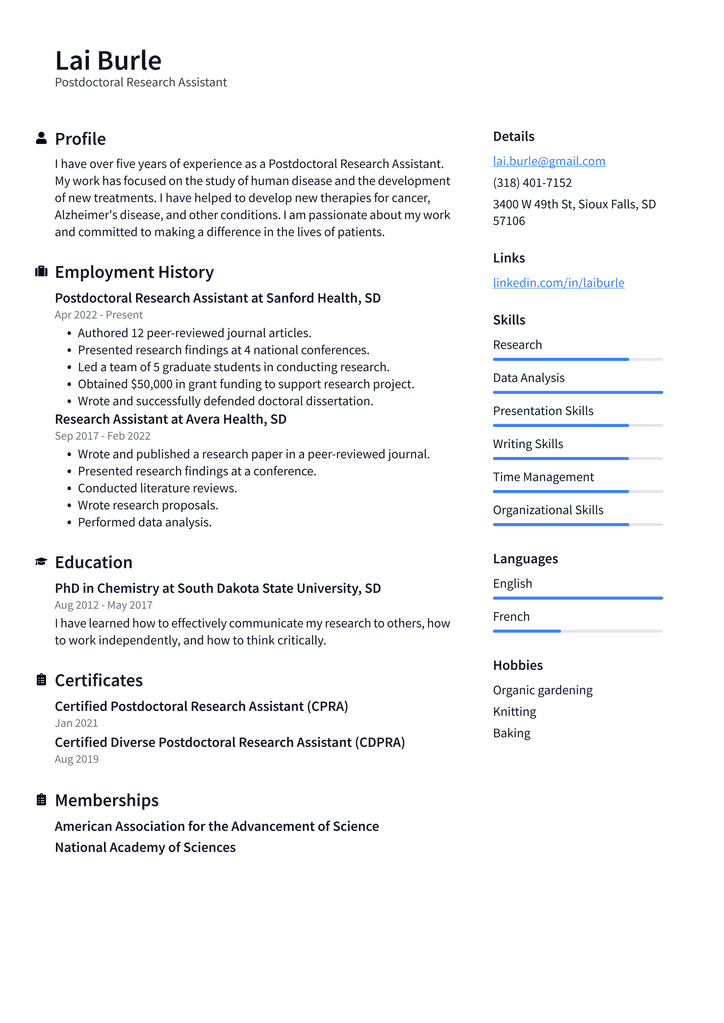
Download This Postdoctoral Research Assistant Resume as PDF
Senior Research Assistant Resume Example
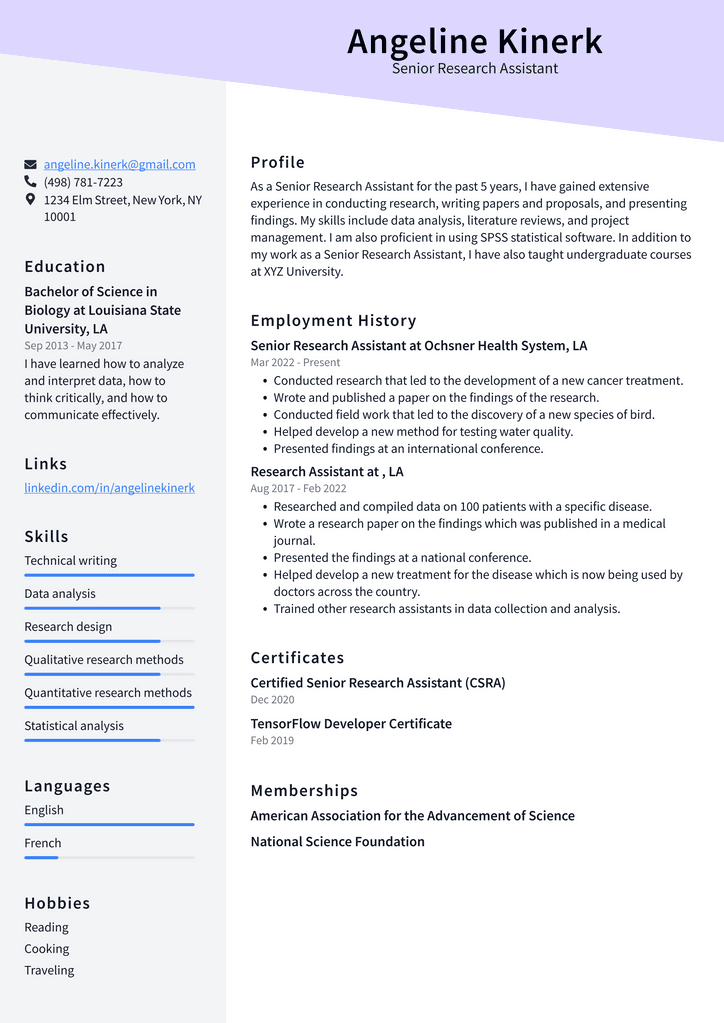
Download This Senior Research Assistant Resume as PDF
Research Assistant Professor Resume Example
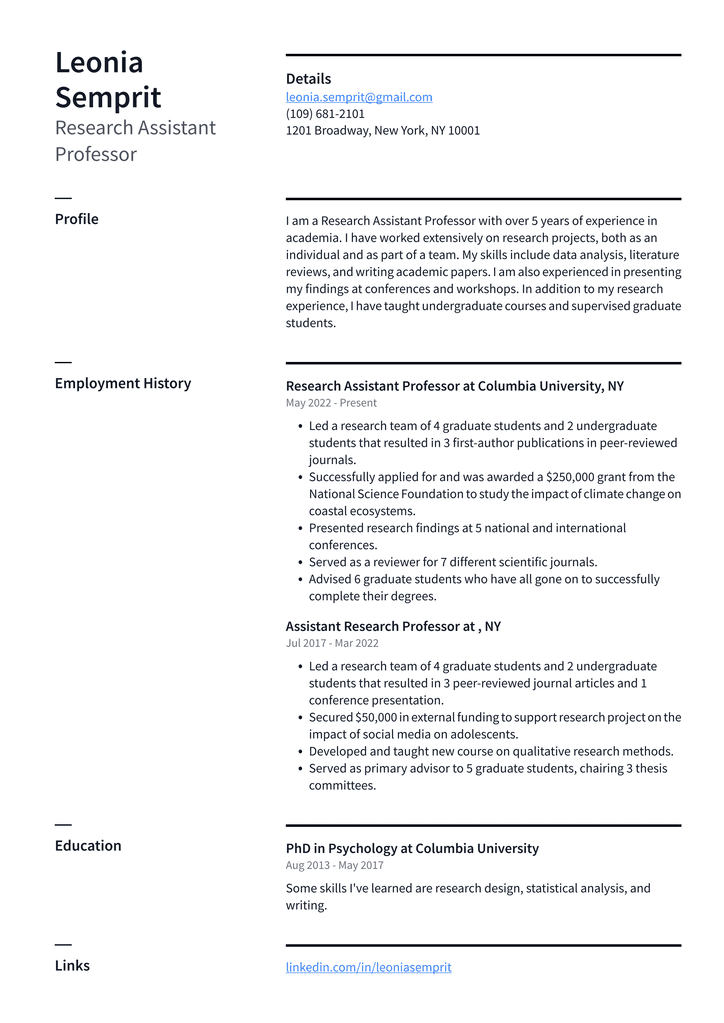
Download This Research Assistant Professor Resume as PDF
Clinical Research Assistant Resume Example
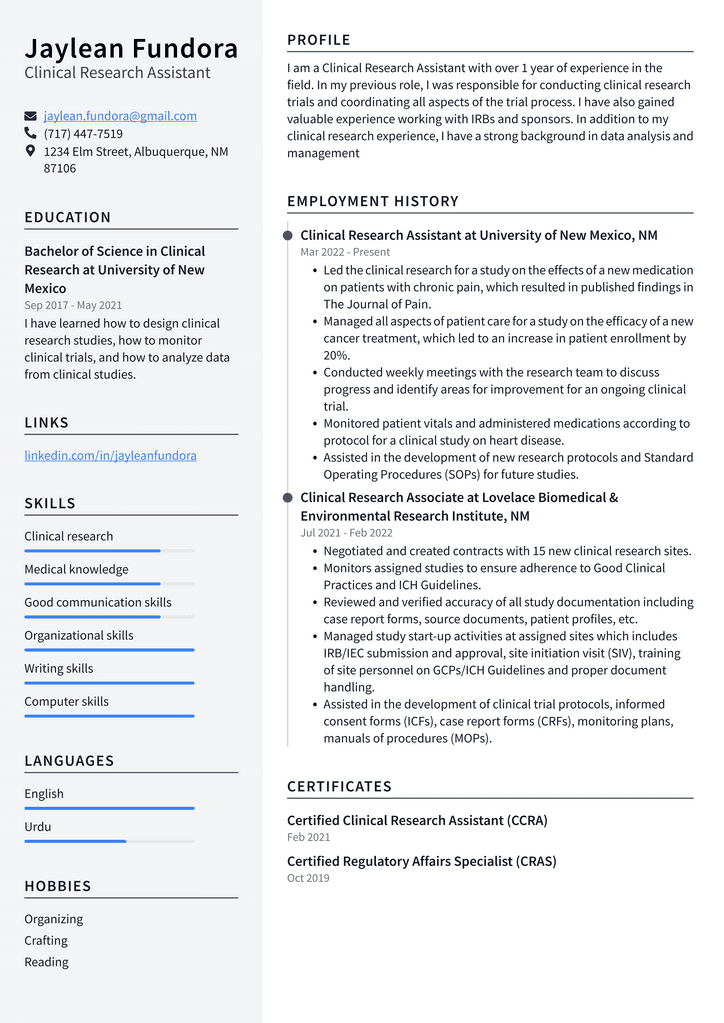
Download This Clinical Research Assistant Resume as PDF
Principal Research Assistant Resume Example
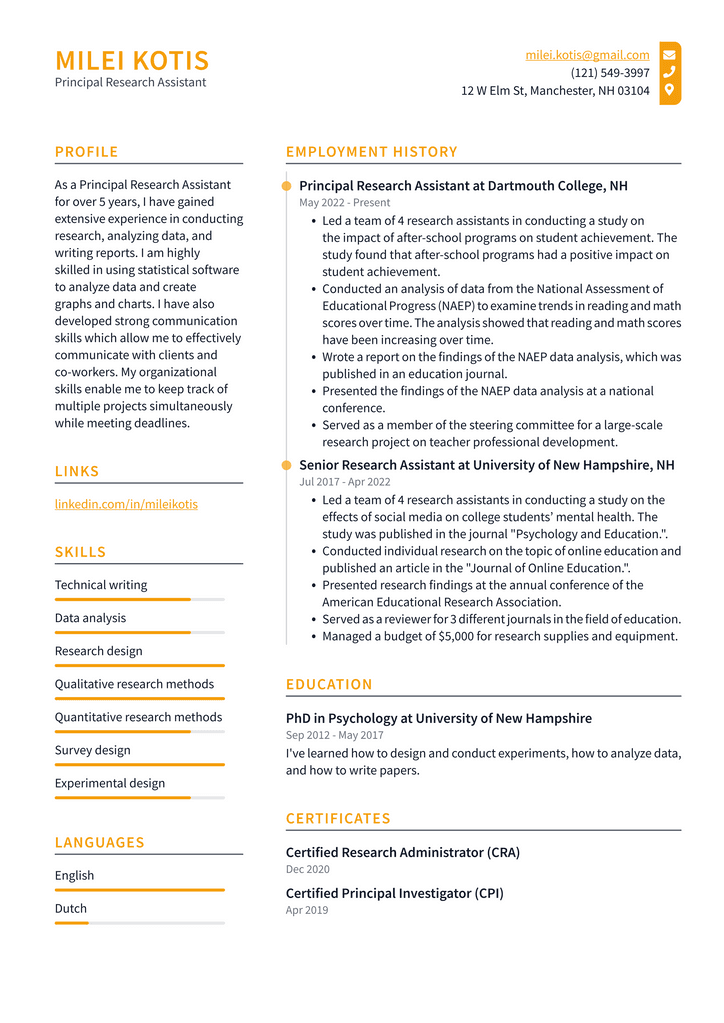
Download This Principal Research Assistant Resume as PDF
Lead Research Assistant Resume Example
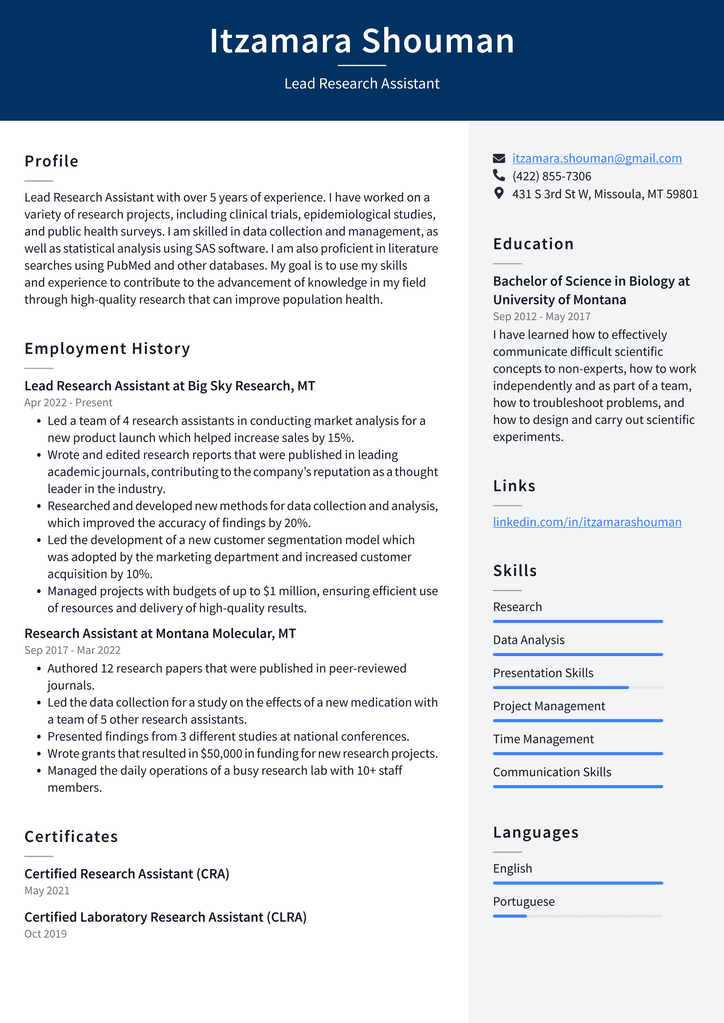
Download This Lead Research Assistant Resume as PDF
What to know before writing a Research Assistant resume
A hiring manager will likely spend just six seconds reviewing your resume, so your first impression must be strong enough to make them want to read on. What are the hiring managers looking for? A hiring manager wants to know if you have the right skills and experience to do the job. They also want to see if you are an excellent cultural fit for the company. Usually, a hiring manager doesn’t get to meet or interview the candidate in person. That’s why your resume is the only thing that represents you at first sight. And, because the hiring manager is likely under a lot of pressure to fill open positions as quickly as possible, you need to ensure that your resume gets enough attention to gain an interview.
Research assistant resume format and layout
There is no “right” format for a resume. What’s important is using the layout that best suits you, your experience, and the job you’re applying for. Remember that hiring managers tend to prefer chronological resumes that list your work experience in reverse chronological order. If you decide to follow this approach, start with the most recent position listed first, followed by the previous job, etc. This chronological structure is preferred because it shows the hiring manager how your skills have developed over time and how you’ve progressed in your career. You can also choose a functional resume format if you’ve stayed in the same job for a long time and want to minimize the appearance of gaps in your employment history. Of course, you’ll want to address these gaps in the cover letter.
Keywords that will help you land a research assistant job
Keywords are essential if you want to be found by potential employers. When you use the right keywords, you help hire managers, and automated software more easily finds and selects you as a candidate. Quickly, tens of thousands of candidates are applying for a research assistant job in a given timeframe. So how do you make sure you’re one of them? By including the right keywords in your resume. Keywords help to hire managers to find you because they search for specific skills in your resume. For example, if you are applying for a position as a research assistant and the company or hiring manager advertises “seeking a research assistant.” Still, your application might get overlooked if you don’t include that exact phrase in your resume.
Resume content: What to include and what to leave out
It’s important to remember that your resume is not a biography. It doesn’t tell your life story, nor should it. Instead, it should concisely represent your skills and experience relevant to the job you’re applying for. And, if you include everything, you risk including nothing. This means that your resume will be wordy and difficult to read. It’s more important to leave something out than to include everything. What to include in your resume: Your name, address, and telephone number – Remember to retain this information at the top of your resume. Contact information – Include your email address and phone number at the top of your resume. Objective – Make sure this is short and to the point. Education – Include the school name, degree, year completed, GPA, if applicable, and coursework. Experience – Include your work experience in reverse chronological order with the most recent job first. Also, for each position, include the job title, company name, and dates of employment. What to leave out from your resume: Biography – Don’t write a story about your life or childhood. Social Security Number – Don’t include this number unless it is required. References – References are not listed on a resume. Endorsements – References are not listed on a resume. Extracurricular activities – Only include these if they are relevant to the job.
Conclusion
All in all, a research assistant job is an excellent fit for people who want to be involved in the scientific community and are prepared to take on various responsibilities. Additionally, a research assistant job is an excellent choice for individuals who want to work for an organization but don’t have a degree in the sciences. Ultimately, if you’re going to land a research assistant job, you need to start with a well-written resume. A good summary will help you get an interview and make an excellent first impression on hiring managers; from there, it’s up to you to seal the deal.